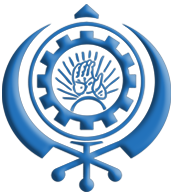GURU Gobind Singh, the Tenth Guru of the Sikhs founded the Khalsa (Servants of God) at the Vaisakhi gathering in 1699, at Keshgarh Sahib near Anandpur, where he had arranged for followers to meet him at the Vasakhi Fair in Anandpur. On that day Guru Gobind singh asked for a man to step forward from the congregation, who was willing to die for his cause. One man Daya Singh stepped forward, and followed Guru into his tent. When Guru came out of the tent, his sword was stained with blood; and asked for another volunteer. One by one Dharam Singh, Himmat Singh, and Sahib Singh came forward. One after another they entered Guru’s tent, and the Guru emerged alone with his blood stained sword. The crowd was nervous, until five men then emerged from the tent, and were nominated as Panj Piares; or the five beloved ones.
The Guru put water in a bowl for sprinkling over the five in a simple initiation ceremony. He said prayers as he stirred the water with a short steel sword; symbolising the need for strength. The Guru’s wife, Mata Sundri, then came forward and placed some sugar crystals into the holy water or amrit as a reminder that strength must always be balanced by sweetness of temperament. After completing his prayers, the Guru then sprinkled the amrit over the five.
He declared them to be the first members of an old community of equals, to be called the Khalsa, meaning “pure”. These “saint soldiers” were to dedicate their lives to the service of others and the pursuit of justice for people of all faiths. The Panj Pyare were asked to wear five distinctive symbols of their new identity, The Five Ks.
In a move to end social divisions the Panj Pyare’s surnames were removed by the Guru, mainly because surnames were associated with one’s caste – the Guru then gave them (and all Sikh men) the name Singh, meaning “lion”, a reminder of the need for courage. At the same time, the Guru gave all Sikh women the name or title Kaur, meaning “princess”, to emphasize dignity and complete equality. The Guru then knelt before the five and asked them to initiate him. Hence, the Khalsa became a community in which master and disciple were equal.
